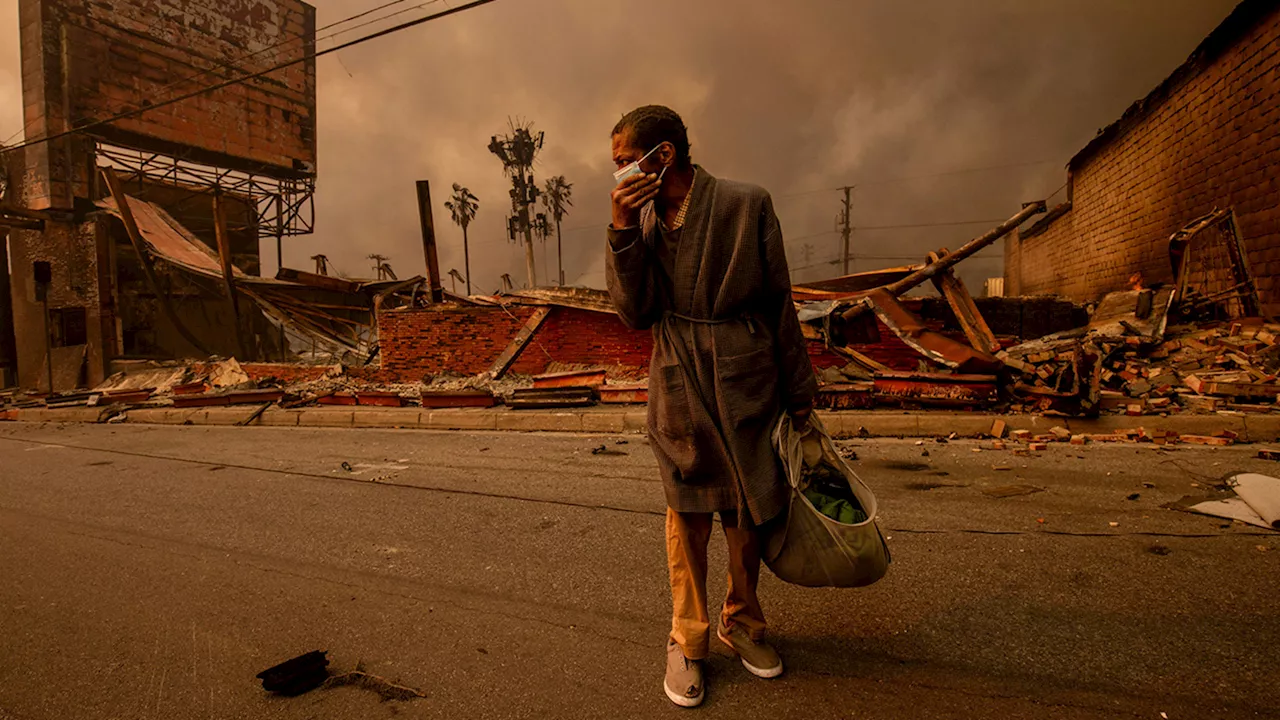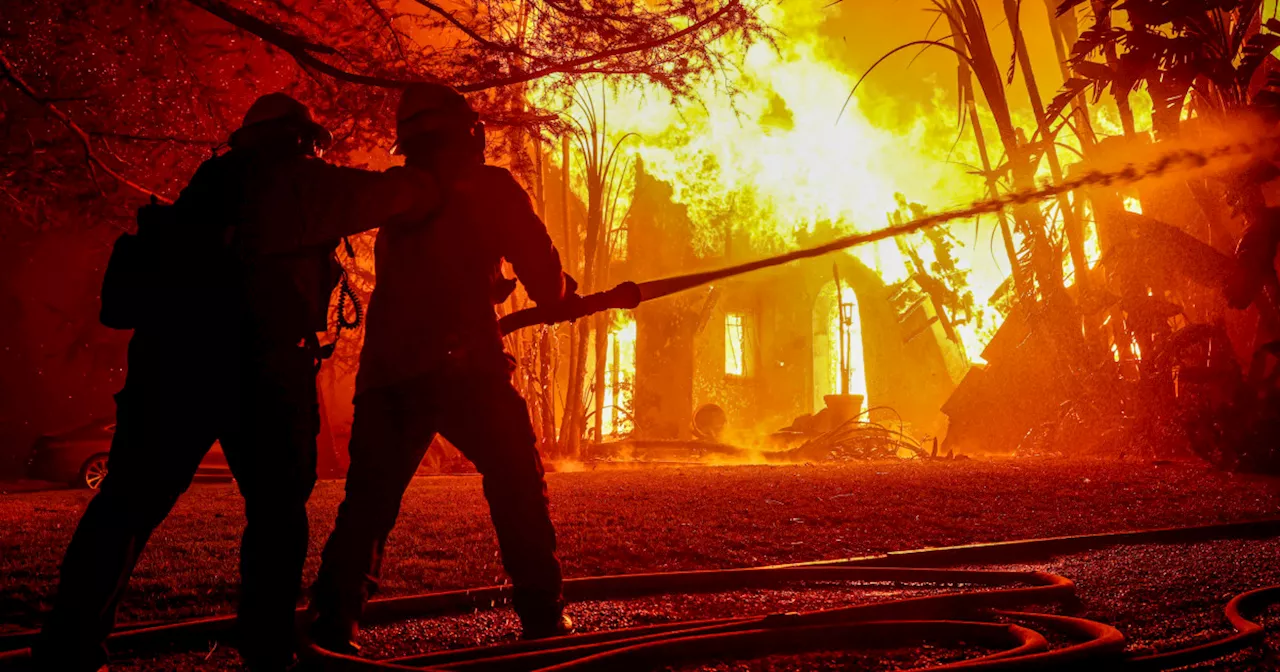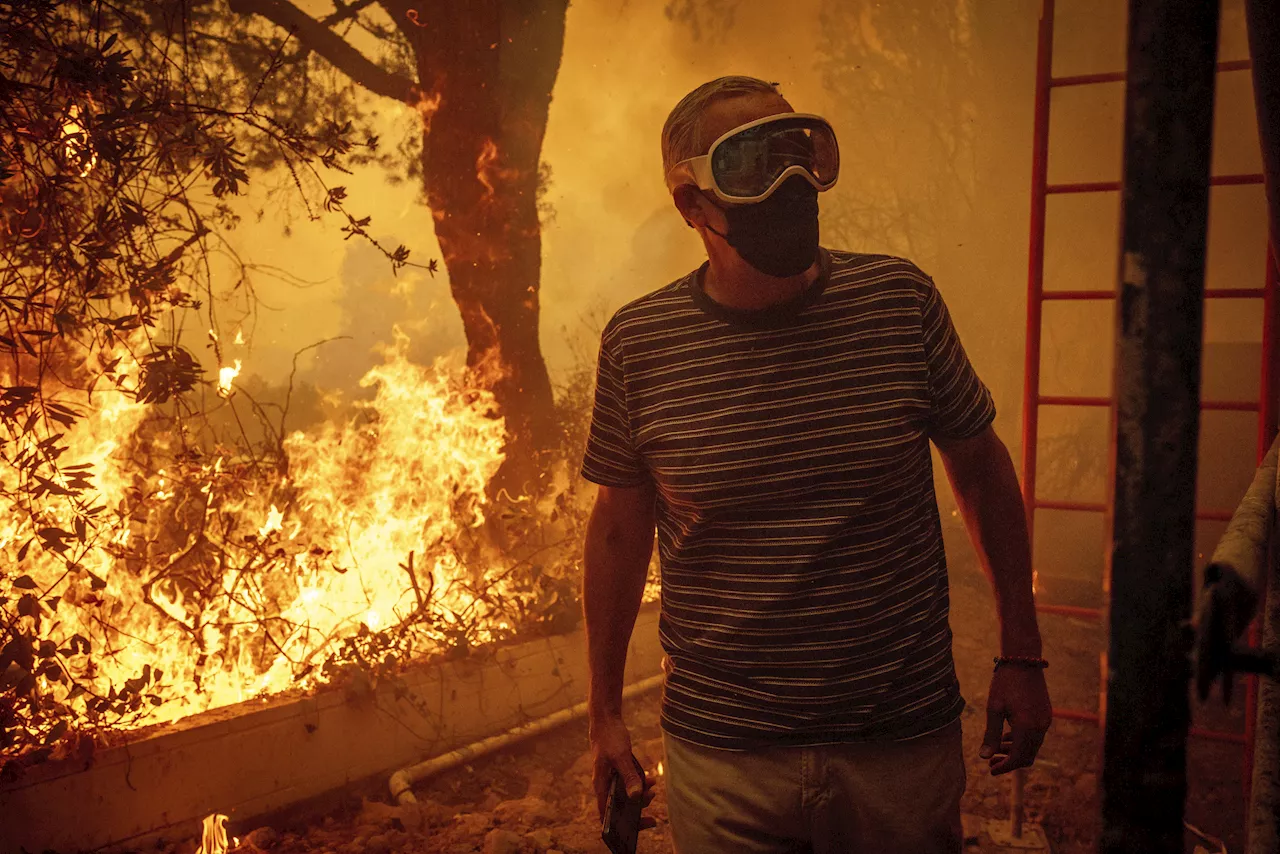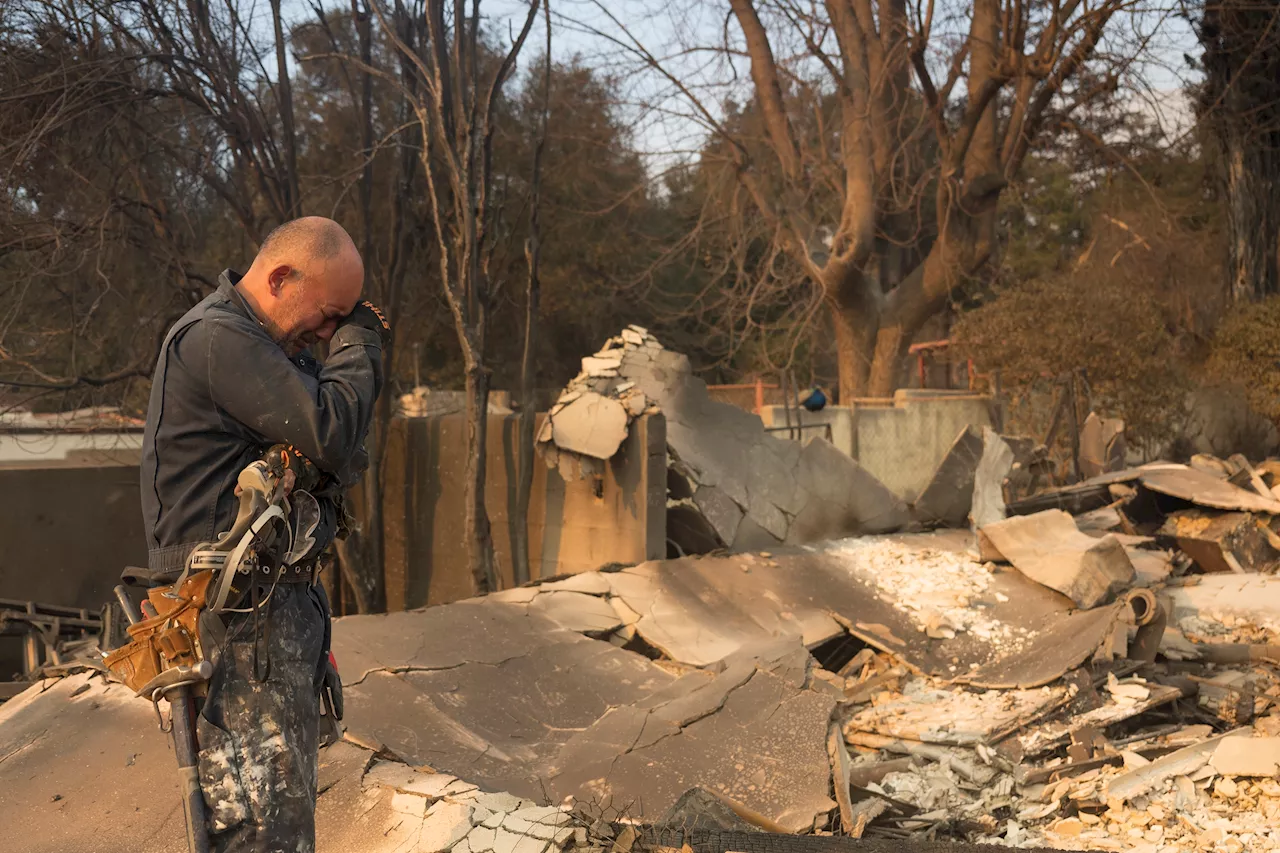The California wildfires have devastated Altadena, a community known for its Black homeownership and resilience. Many fear the fires have irreparably damaged this haven, potentially leading to gentrification and displacement.
Altadena had been a mix of tiny bungalows and magnificent mansions. The community of 42,000 includes blue-collar families, artists, entertainment industry workers and white-collar ones. About 58% of residents are non-white, with one-fourth of them Hispanic and nearly a fifth Black, according to Census data. During the Civil Rights era, Altadena became a rare land of opportunity for Black Americans to reach middle class without the discriminatory practices of denying them access to credit.
They kept homes within the family and helped others to flourish. Today, the Black home ownership rate there is at 81.5%, almost double the national rate. That's impressive considering 92% of the 15,000 residences in Altadena are single-family homes, according to the 2023 Census American Community Survey. The median income is over $129,000. Just over 7% of residents live in poverty. Samantha Santoro, 22, a first-generation college student at Cal Poly Pomona, remembered being annoyed when the initial news coverage of the wildfires focused more on celebrities. She and her sister, who attends UC Berkeley, worry how their Mexican immigrant parents and working-class neighbors who lost their homes in Altadena will move forward.The landlord of their family's two-bedroom house with a pool had never increased the $1,650 rent, making it possible for the Santoros to affordably raise their daughters. Now, they're temporarily staying with a relative in Pasadena. The family has renters insurance but not much else. “I think it’s hard to believe that you have nothing,” Santoro said, through tears, thinking of her parents.'Everything that they ever worked for was in that house.” Victoria Knapp, chair of the Altadena Town Council, worries that the fires have irreparably changed the landscape for these families. “Someone is going to buy it and develop who knows what on it. And that is going to change the character of Altadena,' Knapp said, adding that those with fewer resources will be disproportionately hurt. The family of Kenneth Snowden, 57, was one of the Black families able to purchase a home in 1962. That house, as well as the one Snowden bought almost 20 years ago, are both gone. He is challenging state and federal officials to help all fire-affected communities fairly because “your $40 million home is no different than my $2 million home.” Snowden wants the ability to acquire home loans with 0% interest.'Give us the ability to rebuild, restart our lives,” he said. “If you can spend billions of dollars fighting a war, you can spend a billion dollars to help us get back where we were at.” Shawn Brown lost not only her home but also the public charter school she founded in Altadena. She had a message for fellow Black homeowners who might be tempted with offers for their property: “I would tell them to stand strong, rebuild, continue the generational progress of African-Americans.' She and other staff at Pasadena Rosebud Academy are trying to raise money to rebuild while looking at temporary sites in churches.But even some churches have burned. At Altadena Baptist Church, the bell tower is pretty much the only thing still standing. The Rev. George Van Alstine and others are trying to help more than 10 church members who lost homes with needs like navigating insurance and federal aid. The pastor is worried the fires will lead to gentrification, with Black parishioners, who make up half the congregation, paying the price. “We’re seeing a number of families who are probably going to have to move out of the area because rebuilding in Altadena will be too expensive for them,” he said
CALIFORNIA WILDFIRES GENTRIFICATION BLACK COMMUNITY ALTA-DENA HOMEOWNERSHIP
United States Latest News, United States Headlines
Similar News:You can also read news stories similar to this one that we have collected from other news sources.
 California Wildfires Ravage Southern CaliforniaA series of wildfires fueled by strong Santa Ana winds are wreaking havoc across Southern California, forcing mass evacuations and resulting in tragic loss of life.
California Wildfires Ravage Southern CaliforniaA series of wildfires fueled by strong Santa Ana winds are wreaking havoc across Southern California, forcing mass evacuations and resulting in tragic loss of life.
Read more »
 California Wildfires Ravage Southern CaliforniaThe California wildfires continue to rage, causing widespread devastation and forcing evacuations. The Eaton Fire has exploded to over 10,600 acres, while other fires burn across the region. The blazes have also impacted Hollywood's awards season, with events being delayed or canceled.
California Wildfires Ravage Southern CaliforniaThe California wildfires continue to rage, causing widespread devastation and forcing evacuations. The Eaton Fire has exploded to over 10,600 acres, while other fires burn across the region. The blazes have also impacted Hollywood's awards season, with events being delayed or canceled.
Read more »
 California Wildfires Ravage Pacific Palisades and Scorch LA SuburbsDevastating wildfires fueled by strong Santa Ana winds have ravaged the affluent Californian neighborhood of Pacific Palisades, destroying homes and infrastructure. The Palisades Fire, along with the Eaton Fire near Altadena and the Hurst Fire in Sylmar, have forced evacuations of over 30,000 people. Residents describe the scene as apocalyptic, with smoke billowing across the region.
California Wildfires Ravage Pacific Palisades and Scorch LA SuburbsDevastating wildfires fueled by strong Santa Ana winds have ravaged the affluent Californian neighborhood of Pacific Palisades, destroying homes and infrastructure. The Palisades Fire, along with the Eaton Fire near Altadena and the Hurst Fire in Sylmar, have forced evacuations of over 30,000 people. Residents describe the scene as apocalyptic, with smoke billowing across the region.
Read more »
 California Wildfires Ravage Southern Region Amid Strong WindsWildfires fueled by strong winds have caused widespread damage and evacuations in Southern California.
California Wildfires Ravage Southern Region Amid Strong WindsWildfires fueled by strong winds have caused widespread damage and evacuations in Southern California.
Read more »
 Wildfires Ravage Southern California, Water Shortages Hamper Firefighting EffortsCalifornia faces a crisis as wildfires spread across Southern California, forcing thousands to evacuate and leaving many without power. The Pacific Palisades area is particularly hard hit, with low water levels hindering firefighting efforts. A former city official and local developer highlights the city's aging infrastructure and mismanagement as contributing factors to the water shortage.
Wildfires Ravage Southern California, Water Shortages Hamper Firefighting EffortsCalifornia faces a crisis as wildfires spread across Southern California, forcing thousands to evacuate and leaving many without power. The Pacific Palisades area is particularly hard hit, with low water levels hindering firefighting efforts. A former city official and local developer highlights the city's aging infrastructure and mismanagement as contributing factors to the water shortage.
Read more »
 California Wildfires Ravage Southern Region Fueled by Santa Ana WindsMultiple wildfires fueled by strong Santa Ana winds have erupted across Southern California, forcing widespread evacuations and power outages. The largest fire, the Palisades fire, began in Pacific Palisades near Los Angeles and has spread to Malibu and Calabasas. Two other fires have ignited in the San Fernando Valley and Altadena. The blazes pose a significant threat to densely populated areas, prompting mutual aid from firefighters in Alameda County, Northern California, and the Arizona Department of Forestry and Fire Management.
California Wildfires Ravage Southern Region Fueled by Santa Ana WindsMultiple wildfires fueled by strong Santa Ana winds have erupted across Southern California, forcing widespread evacuations and power outages. The largest fire, the Palisades fire, began in Pacific Palisades near Los Angeles and has spread to Malibu and Calabasas. Two other fires have ignited in the San Fernando Valley and Altadena. The blazes pose a significant threat to densely populated areas, prompting mutual aid from firefighters in Alameda County, Northern California, and the Arizona Department of Forestry and Fire Management.
Read more »
